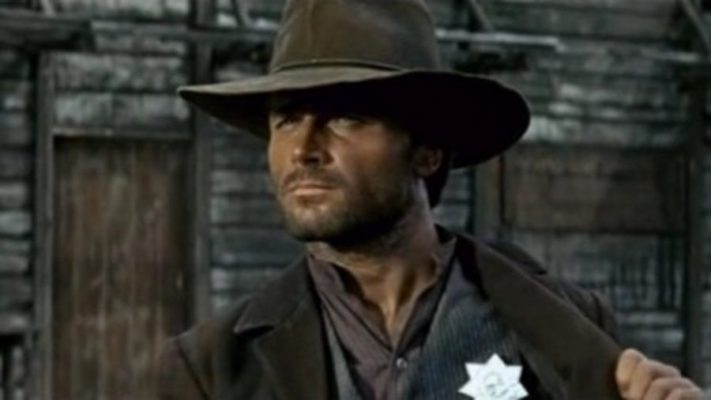Available on Blu-ray Mon 10 Dec 2018
Iconic Italian actor Franco Nero was rarely out of dusty denim in 1966. Discovered by John Huston and with an imposing, stern demeanour that made him look older than his mid-twenties, he appeared in three spaghetti westerns in quick succession, Django, Massacre Time, and Texas, Adios. The last of these is the least idiosyncratic of the three, and while competent and mildly diverting, it falls far short of the standards of its most illustrious contemporaries.
Burt Sullivan (Nero) is a Texas sheriff torn between his sense of justice and duty, and his desire for vengeance against the Mexican crime boss who killed his father. With his younger brother Jim (Alberto Dell’Acqua) in tow he crosses into Mexico to take down his father’s killer, while assisting a band of revolutionaries.
For a spaghetti western, Texas, Adios is a fairly standard oater in the Hollywood mould. While this film was marketed as an unofficial sequel to Sergio Corbucci‘s seminal Django, there is no real comparison. Sullivan is a stolid, taciturn straight-shooter, not cut from the crafty Yojimbo anti-hero template of Django or Clint Eastwood‘s Man With No Name. Without Baldi’s capable direction and impressive use of the rugged Almería landscape, there is little to raise the film above the massed ranks of the genre.
Nero’s rough charisma hauls the film through most of its lean periods, but is hampered by a limp performance from Dell’Acqua as his younger brother (Nero was actually three years younger than his co-star) and its almost a relief when Jim is kidnapped by sadistic villain Cisco Delgado (José Suárez). Texas, Adios is so devoid of memorable characters that fourth-billed actor Elisa Montés is credited only as ‘Dancing Mulatta’. Pass the Bechdel Test this film does not.
Texas, Adios was filmed at the same time as The Good, the Bad and the Ugly, and Nero and Clint Eastwood would socialise during down time. The two actors are cut from the same taciturn cloth, and fans of the craggy American legend will certainly find enough to keep them occupied with Nero’s exploits, but this is by comparison a very ordinary work.
